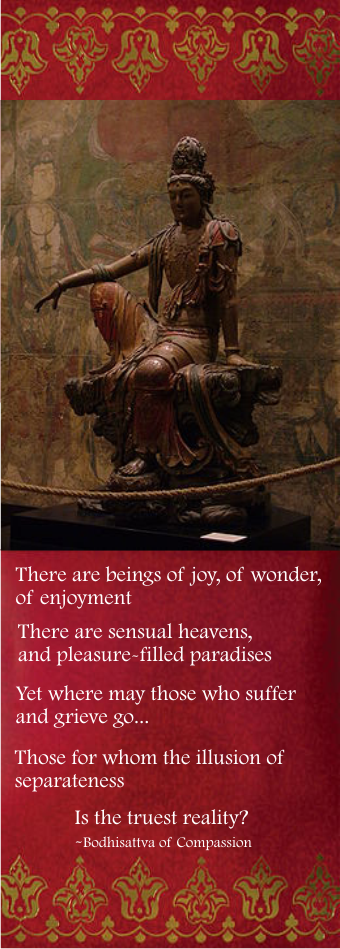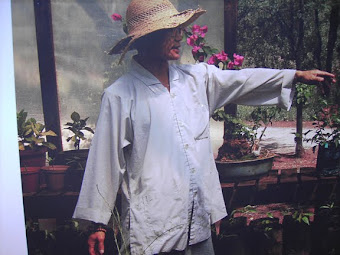
Amitabha Sutra is the popular colloquial name for the Shorter Sukhavativyuha Sutra (Chinese: 阿彌陀經; pinyin: Ā mí tuó jīng; jp: Amida kyō; vi: A di đà kinh), or theBuddha's Discourse of the Amitabha Sutra, is a Mahayana Buddhist text. It is one of the primary sutras recited and upheld in the Pure Land Buddhist schools.
It was translated from Sanskrit into Chinese by the Tripitaka Master Kumarajiva in 402, but may have existed in India as early as year 100, and composed in Prakritlanguage. The bulk of the text, considerably shorter than other Pure Land sutras, consists of a discourse which the Buddha gave at Jeta Grove in Sravasti to his discipleShariputra. The talk concerned the wondrous adornments that await the righteous in the Western Pure Land (Chinese: 西方極樂國), as well as the beings that reside there, including the buddha Amitabha. The text also describes what one must do to be reborn there.
In Pure Land and Chan Buddhism, the sutra is often recited as part of the evening service (Chinese: 晚課; pinyin: wǎn kè), and is also recited as practice for practitioners. It is also frequently recited at Buddhist funeral services, in the hope that the merit generated by reciting the sutra may be transmitted to the departed.

















A Buddhist myself, I'm only beginning to study about Buddhism. This post is simple and easy to understand. Thanks.
ReplyDelete